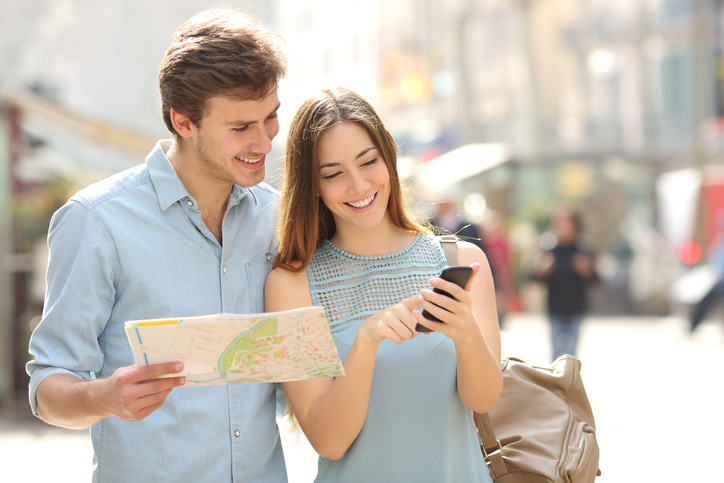What are the best apps for public transportation?
Transit systems around the world make apps available to their customers. Many provide maps, schedules, and trip planners. These apps may even allow passengers to pay fares and use tickets electronically. However, it is also wise to be aware of limitations. For example: while the transition from urban transit to commuter rail might be efficient for the day-to-day commuter, it might also require the use of more than one app for a traveler to get from place to place.
Can I use an app for parking?
In many large cities, smartphone apps can allow users to view what parking is closest to a site, or what parking is available in a neighborhood. You may even be able to map and book parking spaces before your arrival. Some apps even provide parking space photos and GPS tracking, for when you arrive.
Which app should I use for maps?
There are often hundreds of apps featuring maps for your destination. But, which app has the most detail on screen? Which app offers the best access to real-time traffic data? Which app allows you to download maps in advance? Which app connects most efficiently to other local apps and services? The answers to these questions can vary considerably.
Which app should I use to get a ride?
Taxi companies have taken great strides to stay competitive. In some cities, this can mean that there is an app for hailing taxis that offers similar booking, tracking, and payment features to those used by ridesharing networks.
Can I use an app to make dinner plans?
In some areas, the best advice for finding a good meal might be to ask for opinions and make telephone calls. But in others, a smartphone app can let you quickly locate a restaurant that meets your needs, and even make a reservation. Dining enthusiasts should also consider asking if an app is predominantly used by locals or travelers, if this distinction might influence their interests and decisions.


